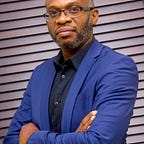African Giant Celebrates A Day Dedicated to Democracy but Fails to Impress
Every year, since the return of democracy to Nigeria in 1999, the 29th of May has been set aside as a public holiday to celebrate the virtues of democracy. The Fourth Republic is the longest stretch of uninterrupted democratically elected administrations that the African giant has experienced since it gained its independence from the British in 1960.
The elections in 1999 ended multiple decades of military rule that began in 1966 and had been interrupted only by a brief period of democracy from 1979 to 1983. The results and fruits of democracy have been mixed for many with some quarters citing that only the political class seems to have enjoyed any benefits from 18 years of uninterrupted civilian rule.
More so, Nigeria was once looked upon as a beacon for spearheading the message of democracy on the African continent. However, preceding this year’s democracy day celebration was a bitter row the Presidency and former President Jonathan about Nigeria being viewed in a negative light amongst the international community, especially with criticism coming from other African countries. At Kingmakers.com.ng, we decided to have a look at how ingrained our democracy is as compared to the rest on the continent.
We started off by looking at the data from the Democracy Index, an index compiled by the UK-based company the Economist Intelligence Unit (EIU) which looks to measure the state of democracy in 167 countries, of which 166 are sovereign states and 165 are UN member states.
The index was first produced in 2006, with updates for 2008, 2010 and subsequently every year since then. The index is based on 60 indicators grouped in five different categories measuring electoral process and pluralism, functioning of government, political participation, political culture and civil liberties.
The five category indices, which are listed in the report, are then averaged to find the Democracy Index for a given country. Finally, the Democracy Index, rounded to two decimals, decides the regime type classification of the country, which could be one of the following: full democracy, flawed democracy, hybrid regime or authoritarian regime.
We took the data from the 2017 Index, which is the latest release and used that to draw up the map shown below, along with the data table for the African countries ranked in the Index.
The results show that Mauritius was the only full democracy on the continent, which means that civil liberties and basic political freedoms are not only respected, but also reinforced by a political culture conducive to the thriving of democratic principles.
A handful of countries, including South Africa were categorised as flawed democracies, which means elections are fair and free and basic civil liberties are honoured but may have some issues with the democratic process (e.g. media freedom infringement).
Hybrid regime, is reserved for countries where significant irregularities exist in elections often preventing them from being fair and free. These countries commonly have governments that apply pressure on political opponents, non-independent judiciaries, and have widespread corruption, harassment and pressure placed on the media, lacklustre rule of law, and more pronounced faults than flawed democracies in the realms of underdeveloped political culture, low levels of participation in politics, and issues in the functioning of governance.
However, the largest group where reserved for authoritarian regimes which are countries where political pluralism has vanished or is extremely limited, infringements and abuses of civil liberties are commonplace, elections (if any) are not fair and free, the media is often state-owned or controlled by groups associated with the ruling regime, non-independent judiciaries are present, and they are characterised by the presence of omnipresent censorship and suppression of governmental criticism.
Nigeria still has a long way to go in its democracy journey as in 2017 rankings, Nigeria was ranked 22nd in Africa, and 109th in the world where It was grouped as a hybrid democracy. While scored the country scored well with its electoral process and plurality, it scored poorly in every other indices measured.
While our ranking has improved since the 2015 elections, which saw an improvement in scoring for the electoral process and the functioning of government, political participation still remains poor and unchanged for the last 5 years. While the political culture showed a slight increase, it seems to be slipping back to the pre-electoral values seen in 2013.
